After a substantial amount of time working from home it would seem that the majority of organisations that we are talking to will be adopting a Hybrid working model.Where the focus will be working from home with the opportunity to come into the office to collaborate, network and innovate.
At Career Moves one team has opted to go into the office once a week, whilst another will meet up more infrequently preferring to work remotely with regular check ins and huddles. The key for us as we navigate this new world of work is to keep up constant and open communication where we collect regular feedback. Our non-negotiables going towards hybrid working is that CMG employees feel unconditionally supported and connected regardless of where they are working.
Every company will be taking a different path through this new world of work and naturally it will take time to adapt and evolve. We wanted to reach out to some key thought leaders to understand their thoughts, feelings and challenges as they embrace hybrid working.
Helen Mathews, Chief People Officer at Ogilvy UK
As we move into our 3:2 hybrid model at Ogilvy UK, we have been holding a series of discovery watering-holes with staff to co-create our blueprint for this big experiment. The biggest challenge is ensuring that belonging and inclusion is firmly at the heart of any return – but especially for hybrid working. How do we ensure out of sight isn’t out of mind? How do we ensure the social connection is maintained, the thread that runs between us all; what does it mean for ensuring career progression – opportunities and learning will need to be even more transparent and purposeful. Our four pillars are place, time, social health and belonging; this has helped us focus on the necessary levers to bring this to life and make it work for everyone.
Darren Campbell, VP People at Moon Bug Entertainment
Many office workers will enjoy greater flexibility, a hybrid or even 100% remote working.Some companies are exiting leases, remodelling offices to create a “village square to hang out & connect”, rebuild individual offices and introduce a hotel style booking system for space.It all sounds rather soulless, I fear.As part of a high growth creative start up with 40% of our people under 28 years old, we believe we create and learn faster when we are together – talking regularly and not just through a screen. We need to build culture, connection, “in the moment” feedback and coaching, allow spontaneous coffee and lunch dates and a place to establish lifelong friendships
Derren Young, Chief People Officer at The Marketing Practise
So for us at The Marketing Practice we are having to adopt a ‘future of work philosophy’ which is that we don’t ever envisage having everyone back full time, we have said that our locations are now destinations. Meaning there is space for those who need it, but we will ask colleagues to come in for team meetings, client sessions, workshops or social events. Other than that they can work where they wish. It’s also interesting that each of our offices are at very different stages of coming out of lockdowns and vaccination. So given this my view is that we will always run with less capacity, hire beyond the usual geographical catchment and embrace working from home or wherever. After over a year of lockdown here in the UK, I’m not sure we can compel people back given custom and practice has been changed irreversibly. It’s interesting as well that we are investing now in apprenticeships, placements, secondments and a new Graduate programme, but trying to balance an inclusive and fun employee experience aligned with our values and need to delight our clients….some of the biggest tech firms in the world.
David Barker, Chief People Officer at Paddle
Here at Paddle, we are looking forward to thinking about the ways of working differently. We are looking at how our Paddlers can do their very best work, from wherever they are, whether at home, the office or someplace else. This new way of operating will have exciting challenges in how we upskill all Paddlers to this new approach. We will look at new management skills, tools and technologies that embrace an all-inclusive way of working. Also, creating the mindset that captures this new approach will be key turning this from the restrictions of a pandemic to become the usual way of operating for our future.
Emma Rudd, Global Head of People at Disguise
The covid pandemic offered an unexpected proof of concept for a range of things affecting industry, society and the workforce; many of which stemmed from putting people first by allowing them to work from home. For the period March – June 2020, nitrogen dioxide (NO2) concentrations fell by between 14% and 38% in the UK; Childcare responsibilities are shouldered by mum and dad, equally challenged by working in the same vicinity; Sitting behind our laptops, a network of disembodied heads and shoulders on screens, we stumbled upon an equity of voice, of access to information, harmony, creativity and connectivity between global teams in a way that seemed unobtainable before now. People leaders must now propagate this ‘Covid Opportunity.’
Di Maxfield-Twine, Chief Human Resources Officer at Superbet
The pandemic has had both an immediate and longer-term impact on the way we work both introducing new trends and accelerating existing.
The biggest or most visible acceleration has been organisations approach to offering more agile and flexible ways of working. The last year has taught us how we do our jobs is much more important than where they do them from. So strong has been this shift we’ve seen (and relatively quickly) into the pandemic a number of organisations commit to their employees working remotely permanently. For Superbet we aim to find a hybrid working model that suits our business and our employees. We want our people to blend the best of office and remote working in a way that is best for them. With this increase in hybrid working, the lines between home and work are blurring and together with the global pandemic there is pressure on our mental health unseen by previous generations. Focusing on our employees wellbeing has never been more important.Employers will not only be required to make access to wellbeing support available but provide more directive guidance around preventing Zoom fatigue and burnout from the blurring of the work/home divide. Managers will also need to be more focused and aware on recognising signs of struggle in their teams. The Awareness and concern about health will also mean increased importance placed on employee benefits like gym membership, health screening, private health cover etc.
AI/ Digitisation has also accelerated during the pandemic. Many companies deployed automation and AI in warehouses, grocery stores, call centres, and manufacturing plants to reduce workplace density and cope with surges in demand. We’ve read that the pandemic has had the greatest impact on lower paid jobs and this is an increasing available pool of available labour that organsiations if they are openminded and proactive with support and training can tap into. Its particularly important as predictions seem to be that newly created jobs will be in the higher wage brackets and the need for social and emotional skills will accelerate. Organisations have responded well to the need to show their human side to employees and society, taking a “we are all in this together” approach.It is important they have an innovation and upskilling approach to the change in work force needs rather than one of labour reduction.This need for a human approach and positive societal impact will continue, employees have increasingly wanted and sought after employers who think about their impact on society at large and COVID has brought even greater awareness to this focus.








